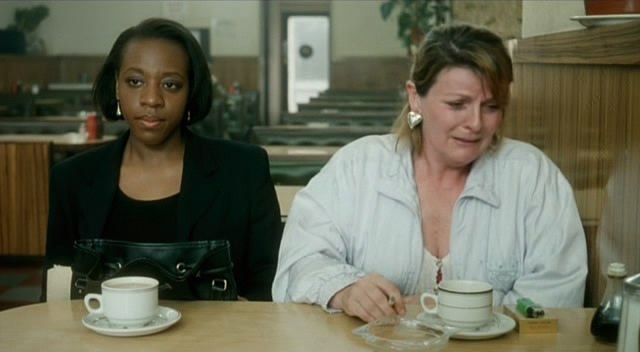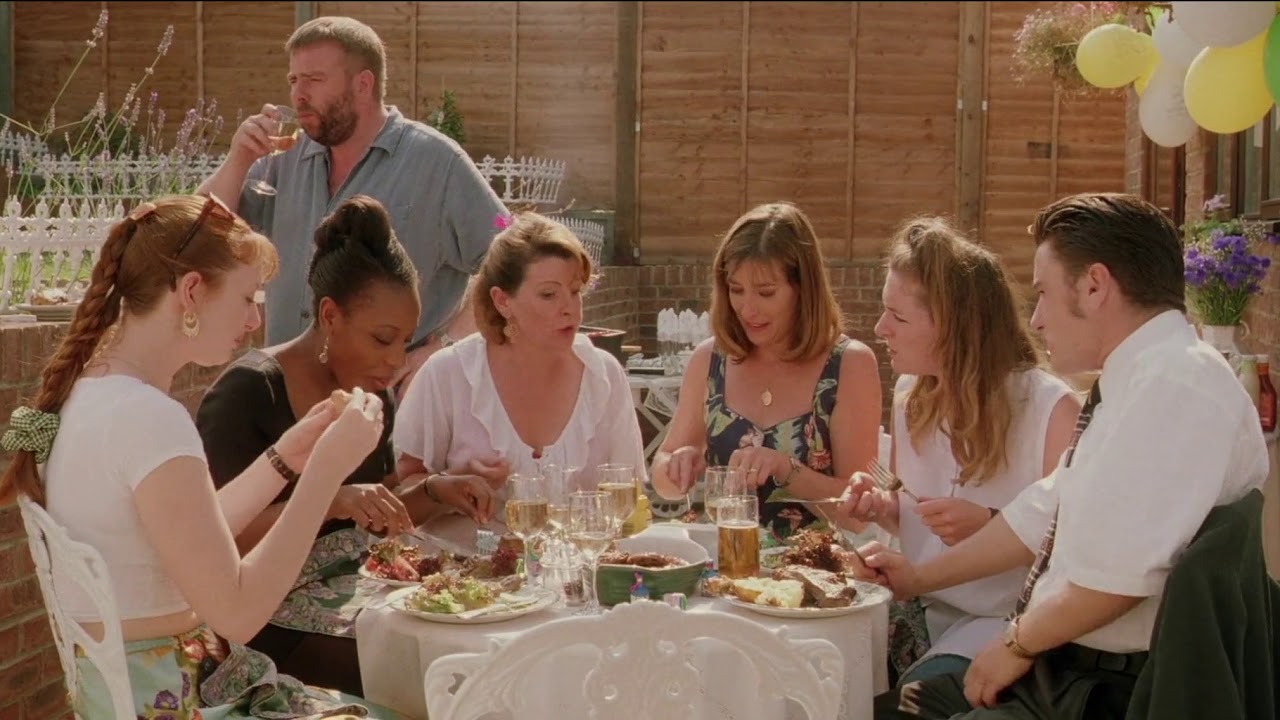“We are all in pain. Why can’t we share our pain?”
Hortense (Marianne Jean-Baptiste) seeks out her birth mother, Cynthia (Brenda Blethyn), who is a nervous mess even before Hortense reaches out to her. The sudden arrival of her child whom she gave for adoption thirty years ago works as a catalyst in revealing all the family secrets and lies.
Mike Leigh tells us the story of a dysfunctional family with deep characters and hidden conflicts. The characters have secrets and lies, and have no courage to talk about them. Everyone tries to draw a decent image within the family whereas they rot inside of suffering. Nobody had bad intentions, but the family drifted apart as a result of their poor choices.
Cynthia is the single mother of Roxanne, who just turns twenty-one. The mother and daughter have a problematic relationship; they don’t share and constantly annoy each other. As a result, Cynthia is nervous and upset, and she cries all the time. The character is portrayed so skillfully that this doesn’t come up as excessive whining. Instead, Blethyn’s performance gives a deep, complex, real woman stuck in a conservative Britain with her consequences of the freedom wave of 1968. She is in need of some warmth and close family relations, like all of us. Blethyn won the best actress award at Cannes for this performance.
Hortense is the black daughter of a white woman, but the racial difference is not even a speaking subject in between all the mess. She is an accomplished optometrist who doesn’t share her apartment and has her own car; which are enough for Cynthia to be very proud of her. Even though the relationship of the two starts hesitantly, the huge secret helps opening up the other secrets to eventually bind the family back together.

Maurice (Timothy Spall) is probably most viewers’ favorite character. Maurice is Cynthia’s younger brother whom she adores. He lives with his wife Monica, and has a close relationship to Roxanne perhaps because they don’t have a child their own. The couple seems to care about providing a healthy and functioning image of their life; they renovate the house, buy a new car even though nothing was wrong with the other one. They fix the outside as they don’t have the courage to fix what’s rotting inside.
At the climax of the movie, Maurice reveals his resentment that he is suffering between the three women in his life. I couldn’t help but think of my dad, who had been living with three women; and has always advised men to stay out of female dramas. Maurice is thorn apart between the three women whom he loves the most.
Another detail that caught my attention is that Maurice is a photographer and is pretty good at his job. He knows what to say to make the people smile and the exact moment to capture the moment. He takes healthy pictures of other dysfunctional relationships for a living. He knows how to capture one happy moment and cling to it, as he has been doing the same for a very long time.
The barbecue scene is nothing but an elongated family picture. The scene is taken as a long shot to continuously convey them eating, drinking, serving food, and having conversation. The scene was designed by Leigh together with the actors. As if they are tiptoeing around buried bombs, the family members find just the words to say to put their fingers around each other’s secrets and lies.
Mike Leigh got Palme d’Or in Cannes for this lovely film. He states that he is hoping that his success will be hope to the filmmakers who want to make films about real life, adding Secrets and Lies is about all the things that matter: love and passion and caring.
